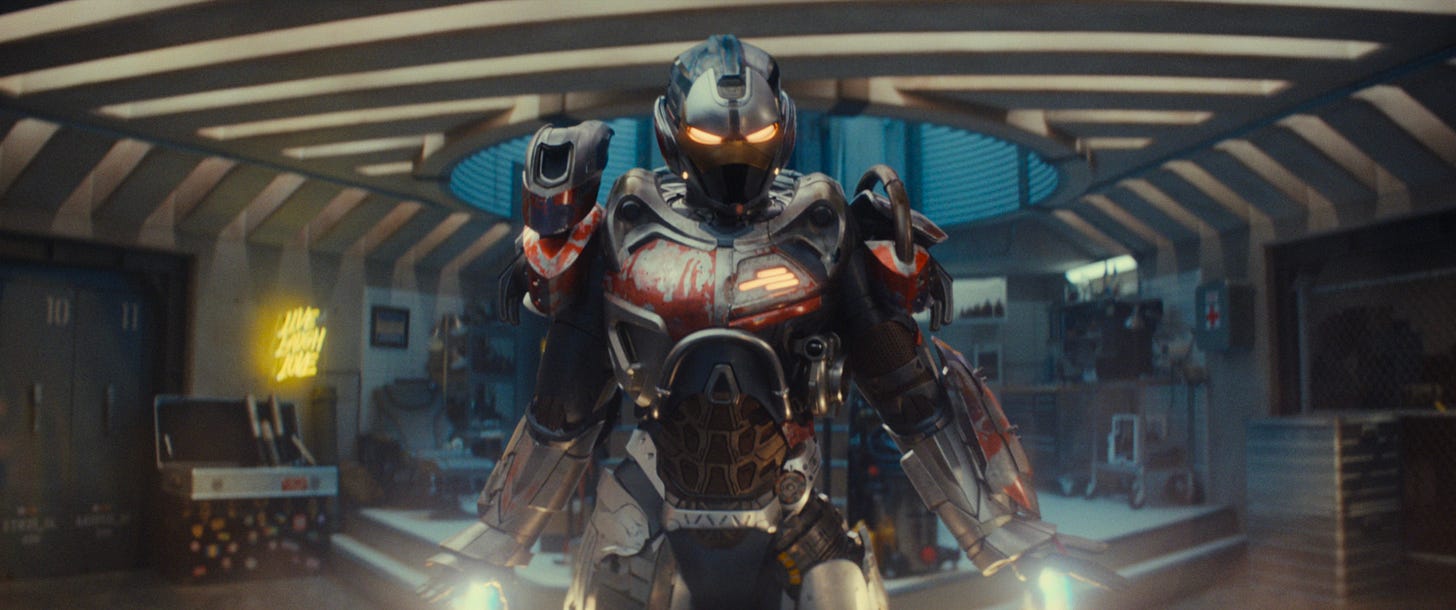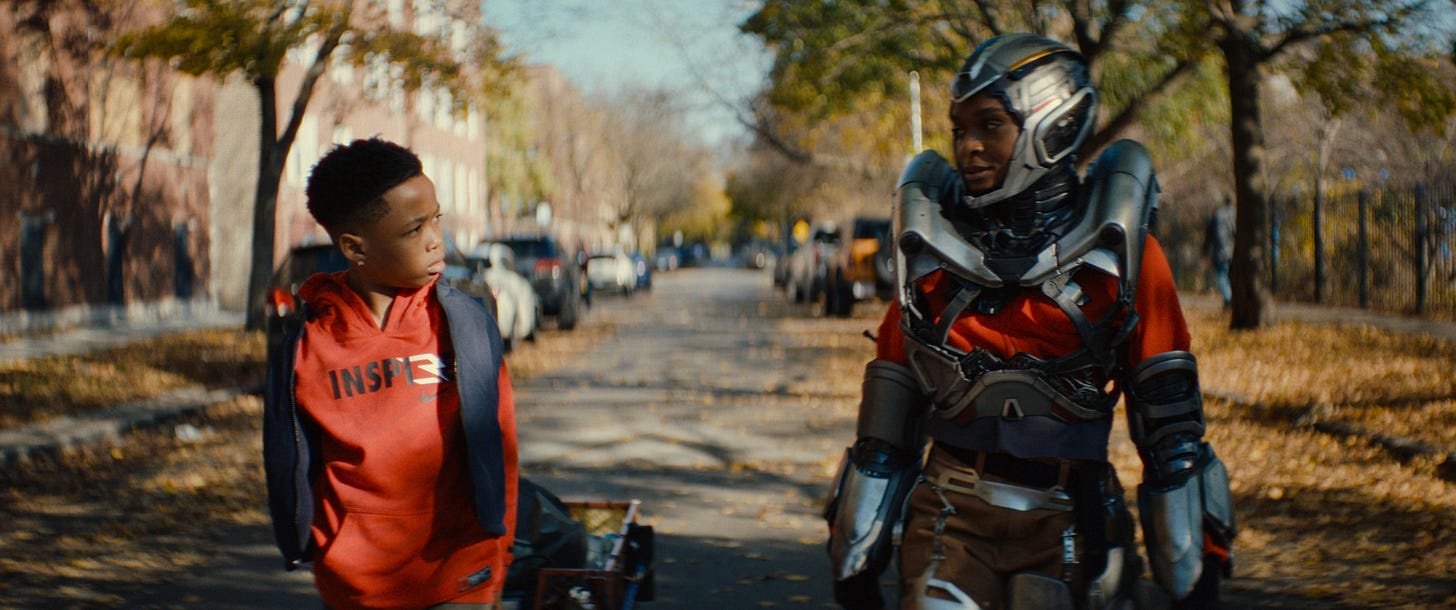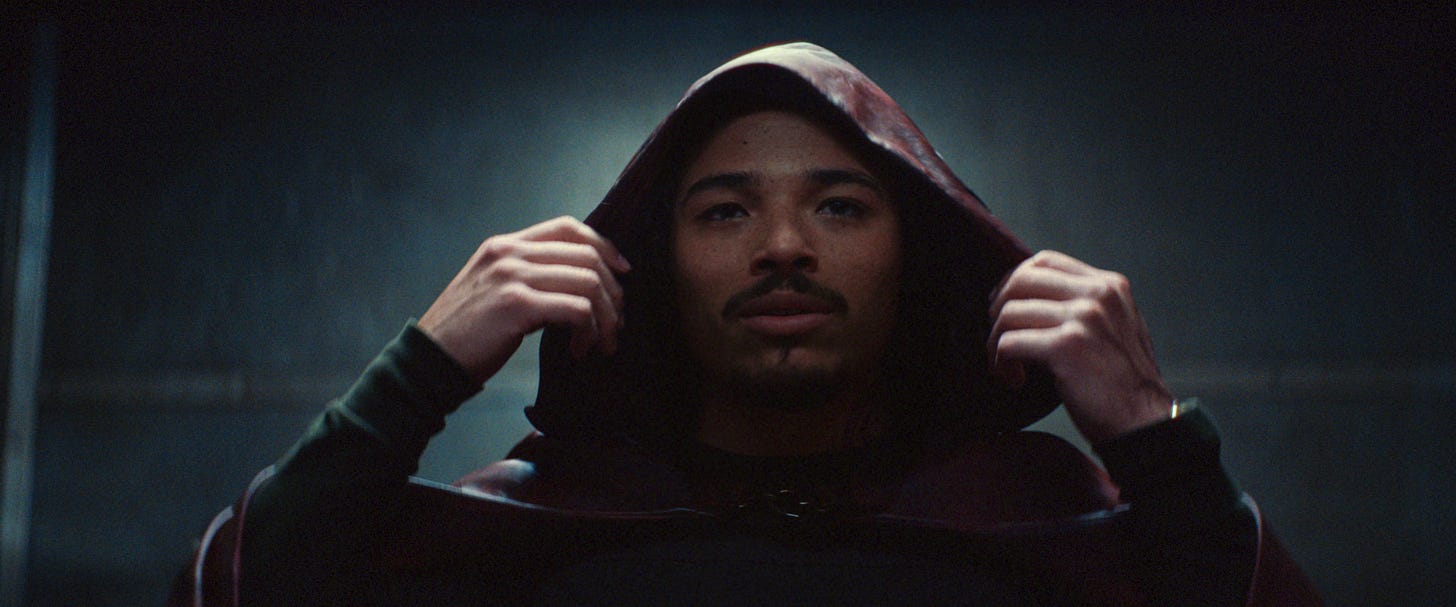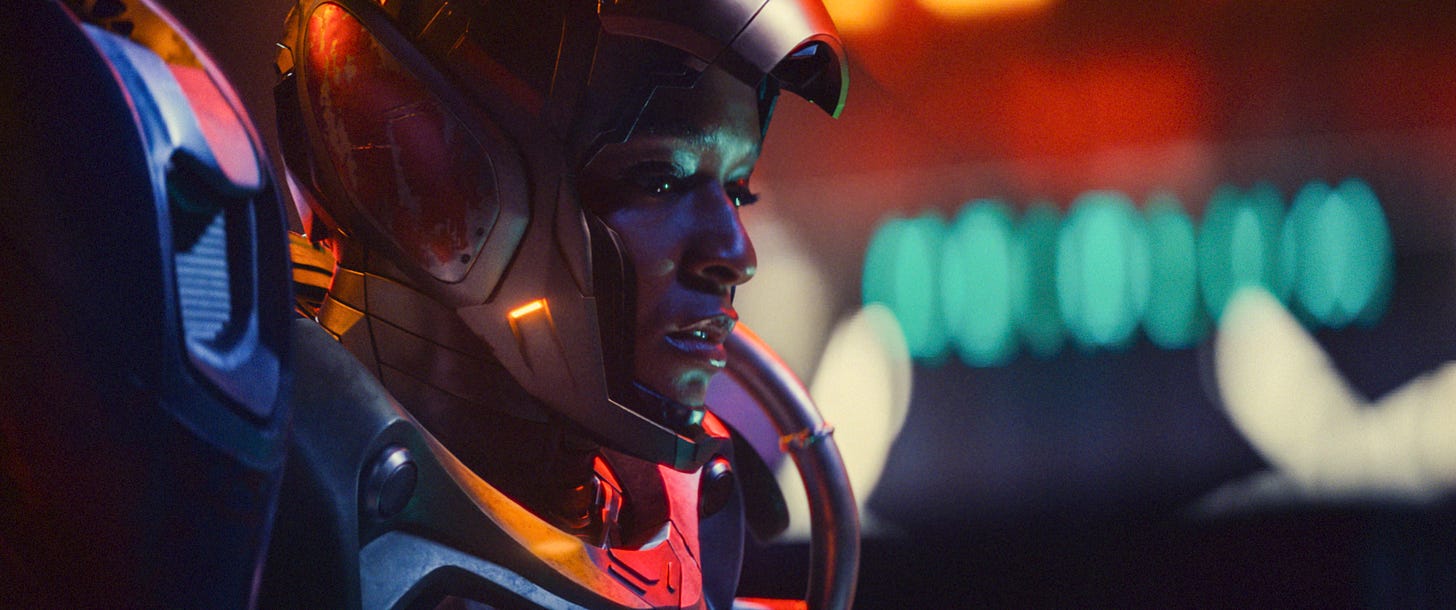Ironheart Review: Riri Reboot

Marvel Studios isn't making a huge deal out of this, but Ironheart is actually the final part of Phase 5, which may explain why six episodes are crammed into two Andor-style batches of three apiece over two weeks, to ensure they get out before Fantastic Four: First Steps kicks off Phase 6 with time to breathe. Generally the phases end on some sort of closure, or with an Avengers movie (in this case, Thunderbolts* The New Avengers ought to have been it). Ironheart...look, I've been asked not to spoil any specific plot points, and I will honor that. But let's just say it ends on a status quo change that demands a follow-up, either in a movie or a second season, and the latter seems far from guaranteed. Were Ironheart purely 100% a standalone show, I could accept the ending as is, but since we know this is the MCU...you cannot just drop something like that and keep pretending afterward that nothing happened.
Vague enough for you? I hope so. Ironheart initially feels like some Spike Lee joints, with its overexposed exterior light, saturated colors, and urban setting that we get once Riri Williams (Dominique Thorne) is kicked out of MIT and heads home to Chicago. You'd think that after she helped prevent a war between sea people and land people in Africa, she'd get the VIP treatment, but it turns out that making dangerous high-tech equipment is more forgivable if you're a middle-aged drunk white guy who looks like Robert Downey Jr. than a young Black teenage girl, who's equally brilliant, but less than a millionth as rich.

Like many a filmmaker working for Disney, Riri laments the fact that no matter what she wants to apply her genius to, she only seems to get noticed when she makes an Iron Man. That's a pointed critique of franchise domination, though we soon learn that her late stepdad was a fan of Tony Stark, so there's some sentiment at play too – it's that mix of hanging on to lost childhood and resentment of franchise staleness that gives so many viewers a love-hate relationship with superhero stuff these days. It also hints at what we're about to see: an attempt to insert creative genius into a property that must at least go through the motions and iconography of Iron Man.
A predictable inner city arc has an impatient Riri turning to crime to get her projects funded, albeit crime she believes to mostly be victimless save for some one-percenter jerks – one heist even involves an underground traffic tunnel, not unlike the sort proposed by a real-life ketamine-loving dope who probably ensured you won't get Social Security checks if you're reading this. Her new boss is Parker (Transformers: Rise of the Beasts' Anthony Ramos), also known as the Hood for constantly donning a hooded cloak that rather pointedly resembles Doctor Strange's similar garment. It behaves more like Tolkien's One Ring, though, giving Parker the power of invisibility while becoming addictive and taking a toll on his soul. Before too long, what initially felt like urban tragi-drama takes a dive into the mystical side of Marvel – an unexpected and delightful genre-blend that feels new.

It's with Parker's gang that comic-book sticklers may have a problem, especially fans of the more obscure characters. Slug, a villain usually depicted as a 1200-pound white man, is now played by the svelte, Black drag queen Shea Coulee. The Blood Brothers, normally aliens, are now female and nonbinary, respectively, underground MMA-fighting siblings played by Shakira Barrera and Zoe Terakes as seemingly human. Rampage, a white nerd and reformed villain on the page, is played by Eric Andre. “Clown” (Sonia Denis) is traditionally a more flexible moniker, here seemingly referring to excessive, yet still feminine makeup. It's a case of characters who could have been original or generic being given names of existing characters, but without necessarily basing them heavily on their namesakes. If you are truly a lifelong diehard fan of the Blood Brothers or Slug, I can feel sympathy for you. On the other hand, I suspect a bunch of dishonest trolls will suddenly emerge from the woodwork claiming to have always adored these characters, most specifically their whiteness, and firmly believe (for the sake of clicks) this is once again the “woke M-she-U” stabbing fans in the back and front.
On the other hand, part of what I personally like the most about Ironheart is the degree to which it is “woke Iron Man.” The original Iron Man in comics is often pitted against the Mandarin as an arch enemy, a character who uses alien technology that's close to magic, and we haven't seen that in any of the movies, because the Mandarin is an outdated Fu Manchu stereotype. The MCU has attempted to deconstruct the character twice – once as a phony figurehead portrayed by an actor, and the second time as a lovelorn warlord who's the father of Shang-Chi. Ironheart finally gives us a version of Iron Man versus a magical crimeboss, and even if the stakes aren't world-ending, it's a storyline we haven't seen yet. There are no cameos from familiar characters – did you really think they'd shell out for a Robert Downey Jr. AI on a TV show? -- but the larger MCU does tie in a lot more than the first episode may make you think, with real consideration to the way superheroes have both affected the world and are viewed as celebrities.
Ironheart understands that an 'arc reactor' is more than just a plot MacGuffin to power a robo-suit!
Indeed, this show has some of my favorite characters so far in a Marvel show, particularly Alden Ehrenreich as Joe, a black market tech dealer who feels like the missing link between characters typically played by Jack Black and Jack Quaid. His arc, which I hope continues, is one of the most satisfying in the MCU, and even if you know his comic origins, it keeps you guessing, which is the best outcome of changing things up. (Disney, feel free to use this pullquote: “Ironheart understands that an 'arc reactor' is more than just a plot MacGuffin to power a robo-suit!” You're welcome.) As with Tom Holland dropping plot points in front of Samuel L. Jackson, though, it is weird to have characters make Star Wars references when the actual young Han Solo is right there (and the old one was just president!).
All the plot stuff and strong supporting turns might make Thorne's performance easier to forget about, so let's not – even if it seems mildly inconsistent with her appearance in Wakanda Forever. Ironheart as a series has a narrative design to utterly break down Riri's confidence, saddling her with panic attacks rooted in childhood trauma (funny how none of those manifested during an actual war with sea people), and taking away most of her support system before building her back up again. It might have been nice for continuity-heads to just hear a line about how Shuri has been off the grid for a while, if only to explain how Riri can't simply pick up the phone to her old super-rich, royal family friends in Africa who more than owe her one.

Taking the story as its own thing, though, Ironheart is constantly mindful of the resources that young Black women in Chicago do and don't have, and how even the supposed merit-based rewards of the white world come with strong “What have you done for me lately?” strings attached. That's a lot to play, along with genius, but Ironheart refuses to follow a simple underdog arc – Thorne hits that mix of vulnerable and arrogant that comes not just with young adulthood, but with brilliance unjustly unrecognized. Unlike her fictional role model, she isn't constantly hitting the charm, so the rough edges are more visible, which makes her more relatable than heroic in some cases.
Six episodes feels about right – while there are character flashbacks, one can sense, as if supernaturally aided by a demon cloak, exactly which parts Netflix might have padded out into entire, excruciating episodes of their own. Ironheart may (does) end too soon, given the note it leaves us on, but the pace, once it picks up, never meanders.
I can't wait to discuss the ending when I can. Depending how it's followed up on, if at all, it will either stand as a brilliant cliffhanger or a hubristic gambit that everyone dropped the ball on. My faith in Feige at this point is just 50-50, though if this story were disconnected from anything else, it could be viewed as having appropriate closure.
We know it ain't, though.
Ironheart episodes 1-3 drop June 24th on Disney+, with 4-6 debuting July 1st.
All images courtesy of Marvel Studios




As you know, I think some of the push back against Marvel for changing things is sincere, even as it's angry. I've seen enough angry fandom over the years, and write about it frequently here, that I see that as natural. That doesn't mean there aren't grifters taking advantage of that. There are. Outrage and click-bait pay more than in-depth and balanced analysis.
As proof of how bizarre some modern criticism gets, I'm sharing this clip that horror-not-Marvel Joe Russo shared on Twitter where someone slags on Jurassic Park for a single frame.
https://x.com/CBMovieFan/status/1937865106991222932
The outrage industry is going to outrage, but I don't see it as partisan. I see liberals and conservatives outrage people into giving up. That's the lesson I learned from Eye of Argon and other incidents of public fandom criticism. The addition of a money stream has only made things worse.